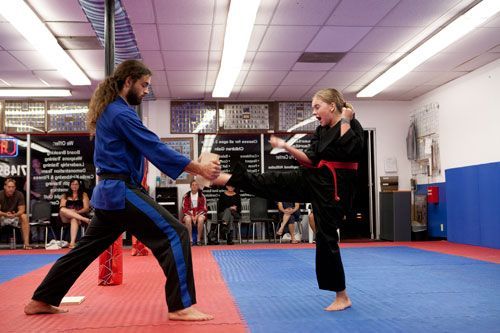Choosing the Right Martial Arts Studio for You
Are you interested in martial arts for yourself or your child, but don't know where to start? With so many styles and studios available, it can be overwhelming. In this guide, we'll share some tips on how to find the right martial arts studio for you, including what to look for in instructors, the importance of style, cost considerations, and more.
1. Find Good, Caring Instructors
This is key to having a good martial arts experience. Look at the studio's website, read reviews, and speak to the instructors directly. Observe a class and pay attention to how the teachers and students interact, and whether the instruction is clear and the students are enjoying themselves. The level of respect between instructors and students should also be apparent.
2. Style
There are many similarities among martial arts styles, but the main difference is whether they focus on stand-up or ground fighting. Kung Fu, Karate, etc. are usually done standing up, while Jiu-Jitsu is a ground fighting style. Decide which style you feel most comfortable with, and be aware of whether the studio's style is more real-world self-defense based or tournament based.
3. Cost
Running a martial arts studio can be expensive, so the tuition will reflect that. Be careful to understand what you are signing up for, and whether contracts or registration fees are required. It's our opinion that you should be able to discontinue with fair notice if you or your child change your mind, and you should be able to ask about regular membership costs. Paying a little more for good instruction and a positive environment is worth it, and don't forget to ask about family discounts. Recreation departments often offer classes at community centers, which can be less expensive, but the equipment and flooring may not be as good and the class schedules may be limited.
4. Schedule
Make sure the class schedule will work with your life. Find out if classes are broken down by age and rank, and consider how often you will need to make trips to the studio, especially if you have more than one child or plan to train yourself.
5. Safety
Check out the studio's environment and instruction. Are the walls and floor padded? Are instructors watching to make sure students are not too close? Is safety emphasized, and do they emphasize respect for other students?
6. Trust Your Instincts
Finally, trust your instincts when searching for a studio. Remember that martial arts training offers many benefits, so if the first place you check out doesn't seem like a good fit, keep looking.
Choosing the right martial arts studio can be a daunting task, but by considering the factors outlined in this guide, you can find a studio that meets your needs and helps you achieve your martial arts goals. Remember to look for good, caring instructors, consider the style, cost, schedule, safety, and trust your instincts. We hope this guide will help you make an informed decision and find the right martial arts studio for you.




